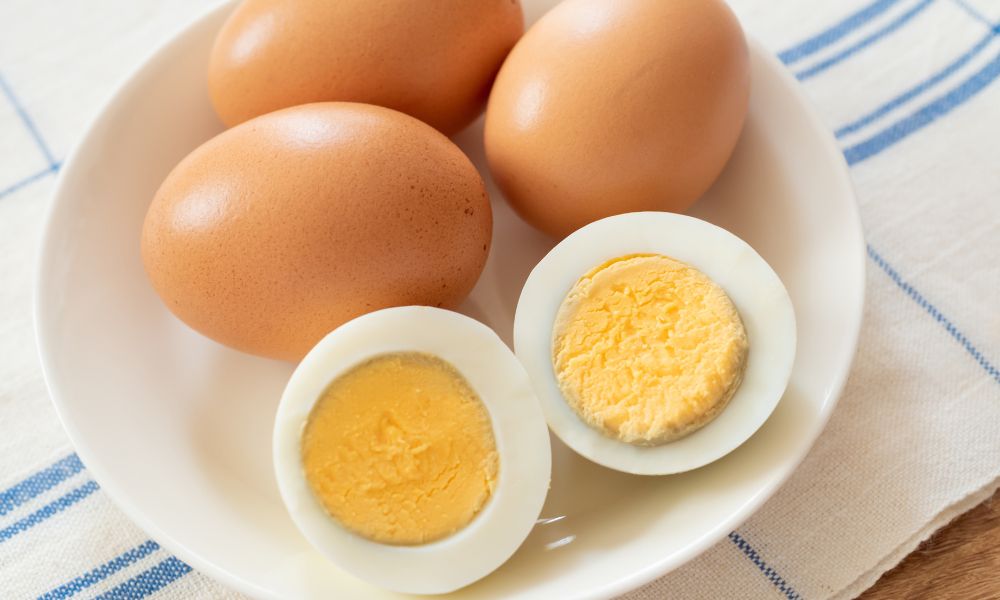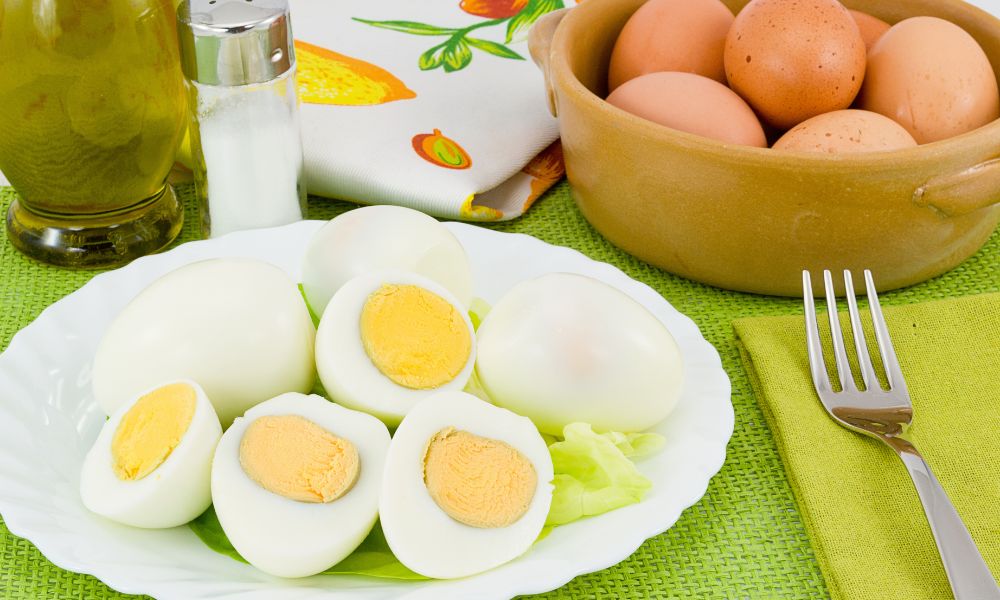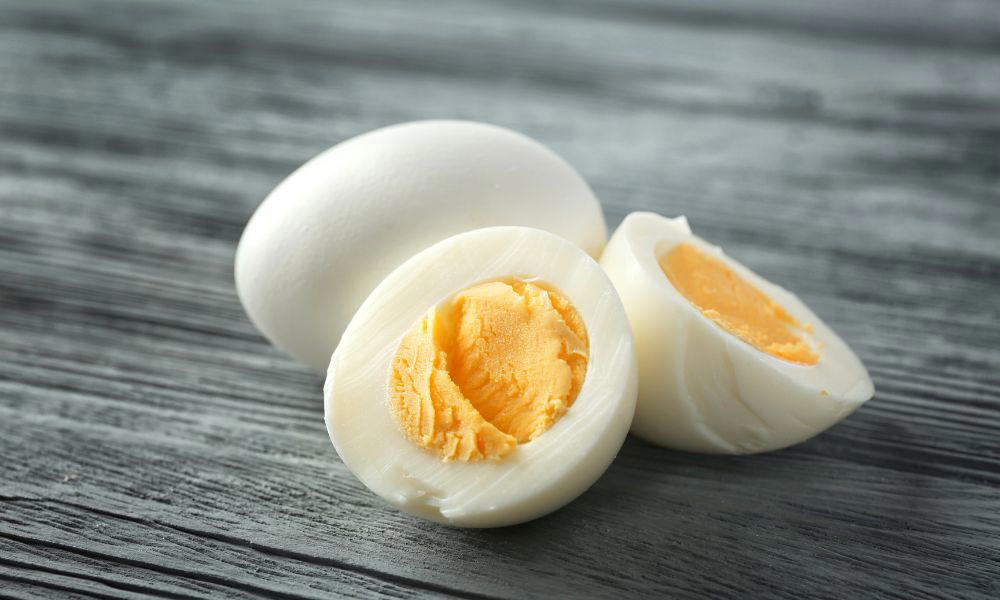Hard boiled eggs are a universally popular and versatile food item that can be easily incorporated into various dishes, or simply eaten as a quick, nutritious snack. As a result, many of us like to keep a batch of hard boiled eggs in the refrigerator for easy access and for use in various recipes. However, a common question that arises is: How long can hard boiled eggs stay fresh in the refrigerator after cooking?
Understanding the proper storage techniques for hard boiled eggs is essential to maintaining their freshness, ensuring food safety, and preventing spoilage. In this article, we will delve into the factors affecting the shelf life of hard boiled eggs in the fridge, recommended storage guidelines, signs of spoilage, freezing methods, and tips for extended storage.

Factors Affecting the Shelf Life of Hard Boiled Eggs
The shelf life of hard boiled eggs is influenced by a variety of factors, including their natural protective coating and the impact of refrigeration. Eggs have a natural protective coating, called the cuticle, that helps keep bacteria out and maintains their freshness. When eggs are boiled, this protective coating is removed, leaving the shell more porous and susceptible to spoilage.
Refrigeration plays a critical role in prolonging the shelf life of hard boiled eggs. It slows down the growth of microorganisms that cause food spoilage, thus extending the safe consumption period. Moreover, storing eggs at the appropriate temperature also significantly contributes to their freshness and overall quality.
In addition, factors such as egg quality and proper storage containers can also impact how long hard boiled eggs can last in the fridge. Luckily, with a few storage hacks and attention to detail, you can ensure that your hard boiled eggs remain appetizing and safe to eat for an extended period.
Recommended Storage Guidelines

To store hard boiled eggs in the refrigerator and maximize their freshness, follow these necessary storage guidelines:
- Cool the eggs: After boiling, place the eggs in an ice bath or under cold running water to stop the cooking process and cool them down. Cooling the eggs makes them easier to peel and helps prevent the greenish ring around the yolk that occurs due to overcooking.
- Choose the right container: Use an airtight container to store hard boiled eggs in the refrigerator. This prevents odors from other foods from being absorbed by the eggs and keeps them fresh for a longer period. If you plan to peel the eggs before refrigerating, place a damp paper towel at the bottom of the container to maintain moisture and prevent the peeled eggs from drying out.
- Store them in the main compartment of the fridge: The ideal location for storing hard boiled eggs is in the main compartment of the refrigerator, where the temperature is most stable. Avoid storing them in the door, as the fluctuating temperature can reduce their quality and safety.
- Take note of the expiration date: Hard boiled eggs should ideally be consumed within one week of cooking, regardless of the expiration date on the carton. However, the date printed on the egg carton is a good reference for the egg’s overall freshness and can give you an idea of how long they will last in the fridge.
- Label the container: This might seem trivial, but labeling your hard boiled eggs with the date you cooked them can help you keep track of their freshness and know when it’s time to enjoy them.
By following these guidelines, you can make sure that your hard boiled eggs are stored safely and maintain their quality for as long as possible.
Signs of Spoilage
Even when following these recommended storage practices, it is crucial to be aware of the signs of spoilage and know when hard boiled eggs are no longer safe to consume. If you suspect that your hard boiled eggs have gone bad, watch out for the following spoilage indicators:
- Appearance: Mold or sliminess on the eggshell is a clear sign of spoilage. Additionally, if you notice a greenish or bluish mold-like substance on the egg yolk or egg white after peeling the egg, it is no longer safe to eat.
- Smell: Bad eggs have a strong, unmistakable foul odor. A rotten egg will release a sulfuric smell that is unpleasant and distinct. If your hard boiled egg has an off or sour smell, it’s time to discard it.
- Texture: Hard boiled eggs that have spoiled may have an excessively runny yolk or a rubbery texture. While it’s normal for the yolk to be slightly soft, a runny texture indicates that the egg is no longer safe to eat.
By being vigilant and paying attention to these signs of spoilage, you can ensure that you are eating fresh, safe, and delicious hard boiled eggs.
Shelf Life of Hard Boiled Eggs

When stored properly in the refrigerator, hard boiled eggs typically have a shelf life of about one week. This, of course, depends on factors such as egg quality and storage conditions. To be on the safe side, try to consume your hard boiled eggs within this time frame and always look out for the spoilage indicators mentioned earlier.
Tips for Extended Storage
While the standard shelf life of hard boiled eggs in the fridge is around one week, you can use alternative storage methods to extend their longevity even further. One such technique is freezing your hard boiled eggs. To do this, follow these steps:
- Peel the eggs: Before freezing, peel the hard boiled eggs as the shell can crack under freezing temperatures.
- Wrap each egg individually: To prevent freezer burn and maintain quality, wrap each egg tightly in plastic wrap before placing it in an airtight freezer bag or container.
- Date and label the container: Don’t forget to label the container with the date of freezing, so you know when it’s time to consume or discard the eggs.
- Proper thawing: To enjoy the best quality and taste, thaw frozen hard boiled eggs in the refrigerator overnight or by placing them under cold running water. Avoid thawing at room temperature, as it can lead to uneven thawing and promote bacterial growth.
Keep in mind that while freezing can extend the storage life of hard boiled eggs, they might not taste exactly the same after thawing. The texture of the yolk can become crumbly, and the egg white may turn slightly rubbery. However, they can still safely be used in recipes that call for hard boiled eggs, such as egg salads or deviled eggs.
By understanding and implementing proper storage techniques, you can maximize the freshness and quality of your hard boiled eggs, and safely enjoy them in various delicious dishes.
Conclusion
In summary, understanding proper egg storage is crucial to maximize freshness and ensure food safety when enjoying hard boiled eggs. By following proper storage guidelines in the refrigerator, paying attention to signs of spoilage, and exploring extended storage methods such as freezing, you can savor the taste of fresh hard boiled eggs for an extended period.
Always make it a priority to prioritize food safety and store your hard boiled eggs according to the methods outlined in this article. By doing so, you can fully relish the versatility and deliciousness of these protein-packed powerhouses.